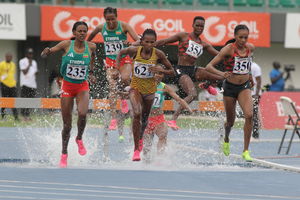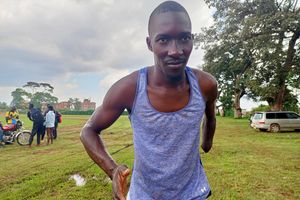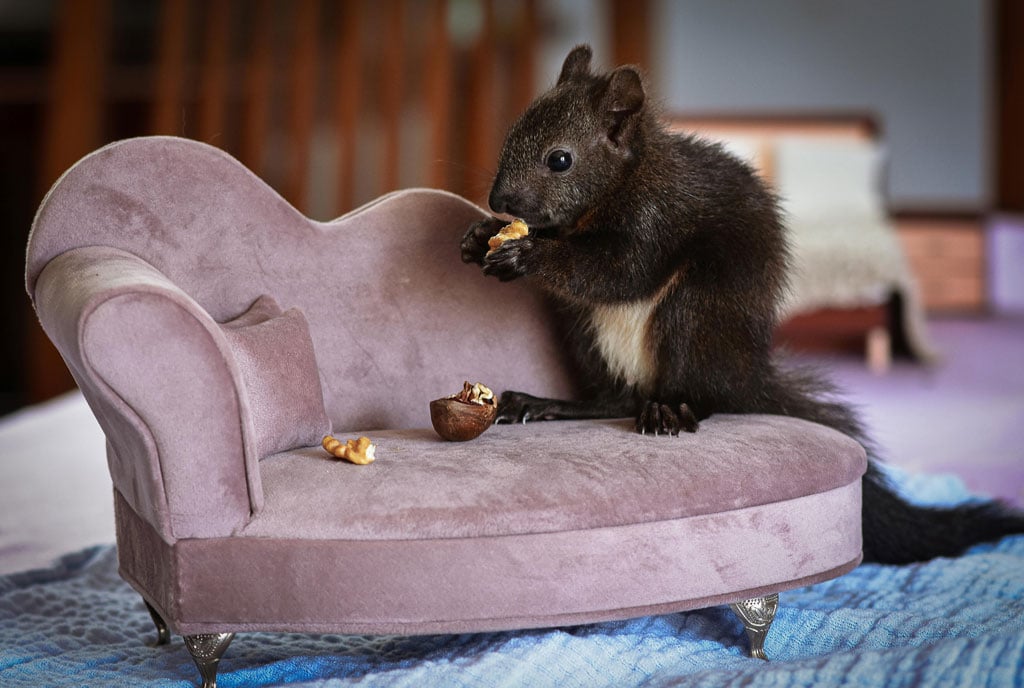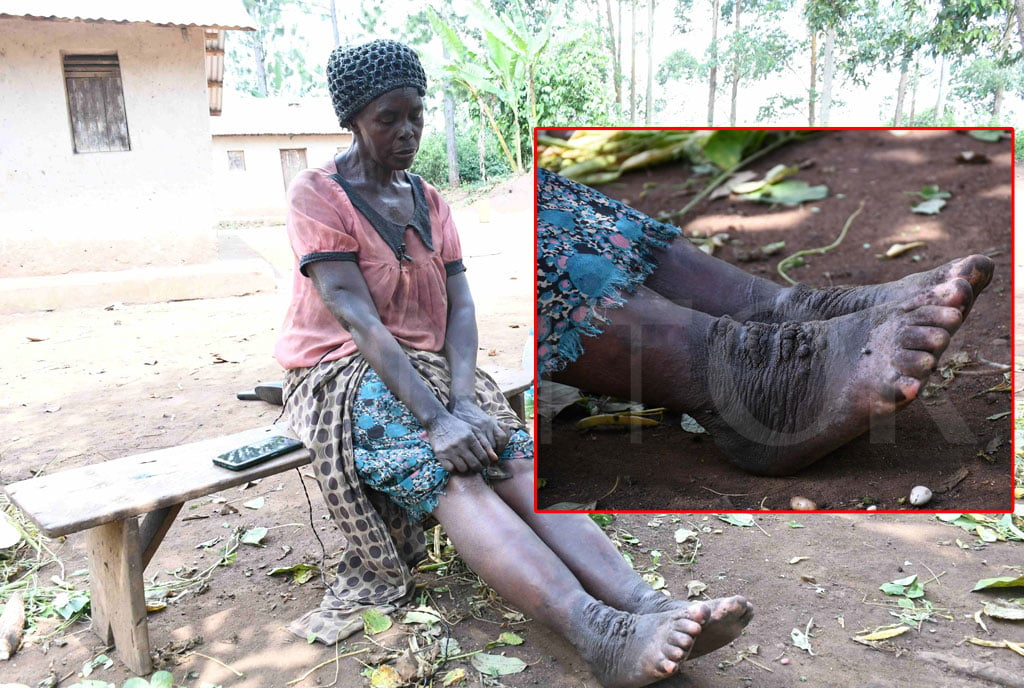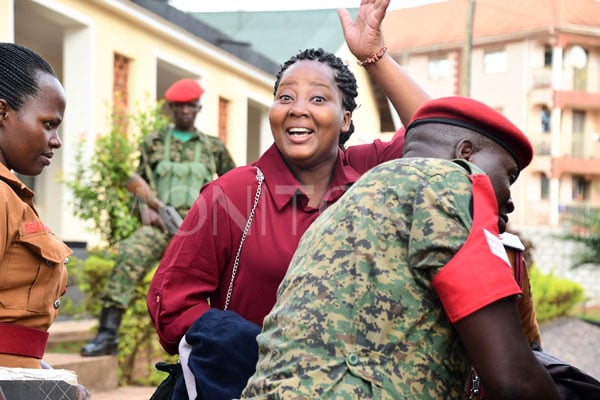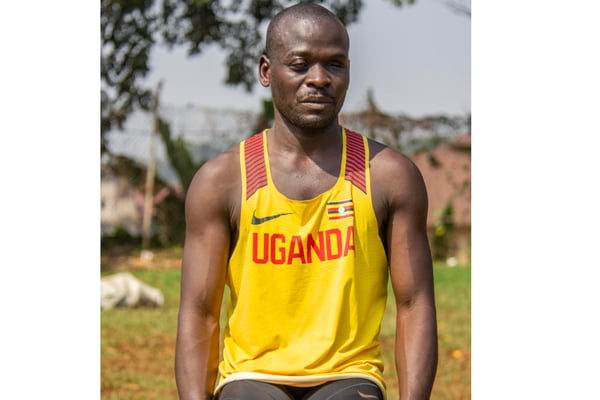
Barbara Birungi Mutabazi is a social entrepreneur . PHOTO / COURTESY
Fred Masisa was overjoyed when he won two bronze medals in the 400m and 100m races at the Dubai World Para Athletics Grand Prix in February this year.
This triumphant moment not only marked a significant personal victory but also brought him closer to his dream of competing in the 2024 Paris Paralympics, igniting a new hope and determination within him.
The 26-year-old para-athlete draws inspiration from David Emong, a Ugandan para-athlete who won a gold medal in the 2017 World Championships in London.
“When I heard about Emong’s victory I wanted to be like him. I started active training in athletics (100m, 200m and 400m sprints) in 2018 in my year one at Makerere University and have never looked back,” Masisa says.
Masisa’s love for athletics started when he was at St Angela Magale Primary School in Namisindwa District. However, he did not get a chance to participate in athletics because the school did not have inclusive sports for students such as Masisa who have disabilities.
Because of his burning zeal to actively take part in athletics, Masisa inquired from his primary teacher, which secondary schools included para athletics in their co-curricular activities. He then joined St Francis Secondary School for the Blind Madera- Soroti in 2012 and dove into taking part in athletic competitions.
“I took part in the inter house athletic competitions (100m, 200m and 400m sprints) and surpassed competitors with greater experience than mine. As a result, I earned a place on the school team for the national sports gala,” he recalls.
Defying the odds
Born in Sironko District, Masisa, the eldest of four siblings, grew up a healthy child. However, his life took a turn around the age of five when a playful moment turned into a life-altering incident.
Masisa does not clearly remember what exactly went wrong. All he recalls is that there was a lit candle and a bed sheet he was playing with. In the process, the bed sheet got to his eyes as he played on his bed.
“I felt a lot of pain with tears rolling down my eyes. After a few days, my parents took me to Mbale Main Hospital where I had surgery. I remained with little sight that enabled me to see bright colours and recognise people,” he recalls.
Growing up with limited sight, Masisa faced numerous hurdles, yet his passion for academics burned bright. Unfortunately, in his Primary Five, he lost his sight completely.
“One morning I woke up and the pain was unbearable. I was taken to Tororo Hospital where the doctor said my eyes were tampered with during the surgery and it would be hard to restore my sight,” he narrates.
The resilient Masisa requested for pain relievers so he could continue with his academics. While at St Francis Madera School for the Blind, Masisa participated in national sports galas in Arua (2012) and Kayunga (2013) winning two silver medals in 100m and 400m sprints.

Fred Masisa helped by his athlete guide Joshua Jagalo in February this year. PHOTOs | ISAAC KASAMANI
He recounts his academic journey as a challenging path. Growing up in a peasant family, the burden of paying school fees from primary to secondary level weighed heavily on his parents. That is why getting government sponsorship to pursue a Bachelor of Arts degree in Education in 2018 at Makerere University was such a huge relief.
“I passed my Advanced Level with two principal passes in History, Literature and Divinity. I applied for the government disability entry scholarship scheme which I qualified for,” he shares.
According to Masisa, the government sponsorship brought valuable benefits, including access to on-campus accommodation and meals, which significantly facilitated his studies.
While at university, Masisa’s commitment to excelling in athletics often required him to make tough choices between attending lectures or his training sessions. In instances where these commitments clashed, he would seek guidance from his peers to ensure he stayed on track with his studies despite missing lectures. He attributes his progress in athletics to sacrificing family time for training and surrounding himself with diligent and skilled colleagues who encourage and support him.
“I am always prepared for training, which entails more than just running. It involves going to the gym to enhance performance and doing plank exercises. While the training can be exhausting, there is a clear indicator of its effectiveness,” he explains, adding that his training sessions are only disrupted if he gets annoyed, but quickly regains focus.
Masisa who spends most of his time at Makerere Main Sports Grounds, reflects on the challenges of being a grown-up para-athlete, recognising the weight of responsibilities such as rent and daily expenses without a stable source of income. He lauds his coach, friends and colleagues who support him financially.
“I go to the pitch every day except Sunday and this requires transport, food, and supplements which are not readily available,” he shares, adding: “It is also hard to find a guide, you have to get one who is good at athletics, but who is also willing to endure the difficulties you face as a para-athlete.”
Working to make it for Paris Paralympic Games
All the effort he puts in getting better is geared towards his current ambition, where he hopes to win in bigger events such as the Paralympic Games, Commonwealth Games and All Africa Games. He is determined to do all it takes to win medals and earn government recognition.
Masisa looks up to athletes such as Joshua Cheptegei, Jacob Kiplimo and Christine Akullo, a paralympic athlete competing in the T13 Category (a category where the athletes have the least severe vision impairment eligible for para athletics).
He is also inspired by international para athletes such as Ananias Shikongo and Chris Kinda from Namibia as well as Trésor Gautier Makunda from France.
Being within the qualification bracket of the 2024 Paris Paralympics, Masisa is waiting for a confirmation from the International Paralympic Committee, an international governing body of sports for athletes with disabilities. Should he qualify, he looks forward to doing his best in the global event.
What others say
Jameson Ssenkungu, adapted sports coach at Makerere University.

Masisa scooped two bronze medals at the Dubai World Para Athletics Grand Prix. Photo | Courtesy of Fred masisa.
“Masisa caught my attention in 2018 when he had just enrolled at the university. Knowing he had previously played goal ball (a team sport designed for athletes with vision impairment) I suggested that he tries running. It is then that through the university I sought out a guide for him to support his dream. I began training him, balancing academics with honing his athletic abilities. He has shown remarkable progress, earning qualifications for the Commonwealth Games and more on the horizon.”
Annet Nabbanja, classmate
“I met Masisa in first year at Makerere University, because part of my ministry is charity. Among the many I met, Masisa stood out. He was multitalented, brilliant in class and friendly. I always found visitors at his place. He had multiple skills. He cooked, ironed his clothes and washed for himself. He only needed a guide to move long distances. He had mastered how to use computers and played instruments such as guitar, piano and drums in church. He was robbed of sight but can do anything.”
INSPIRATION
The 26-year-old para-athlete draws inspiration from David Emong, a Ugandan para-athlete who won a gold medal in the 2017 World Championships in London.
“When I heard about Emong’s victory I wanted to be like him. I started active training in athletics (100m, 200m and 400m sprints) in 2018 in my year one at Makerere University and have never looked back,” Masisa says.
Events engaged in
National Galas
2023 National Paralympic Games Arua: Gold medal in 100m and 400m
2019 National Paralympic Games Mpigi: Gold medal in 400m
2018 National Paralympic Games Mbarara: Gold medal in 100m and 400m
2013 National Paralympic Games Kayunga: Silver medal
2012 National Paralympic Games Arua: Silver medal
International events
2024 World Championships Kobe Japan
2024 World Para Athletics Grand Prix, Dubai (won two silver medals, in 100m and
400m)
2022 Commonwealth Games Birmingham
2022 South Africa Qualifiers for Commonwealth Games
2021 Tunisia Qualifiers for Japan Tokyo Paralympic Games
2020 Morocco All Africa Paralympic Championships
